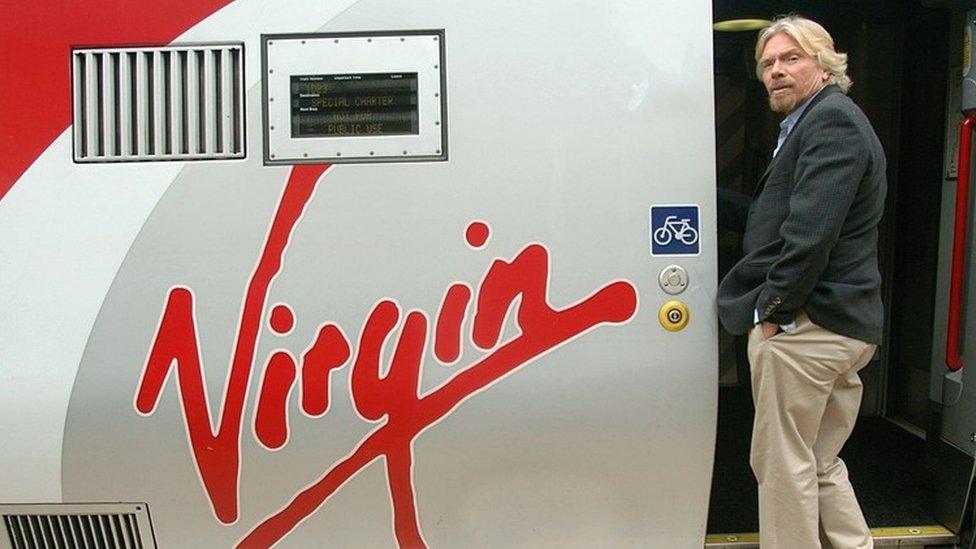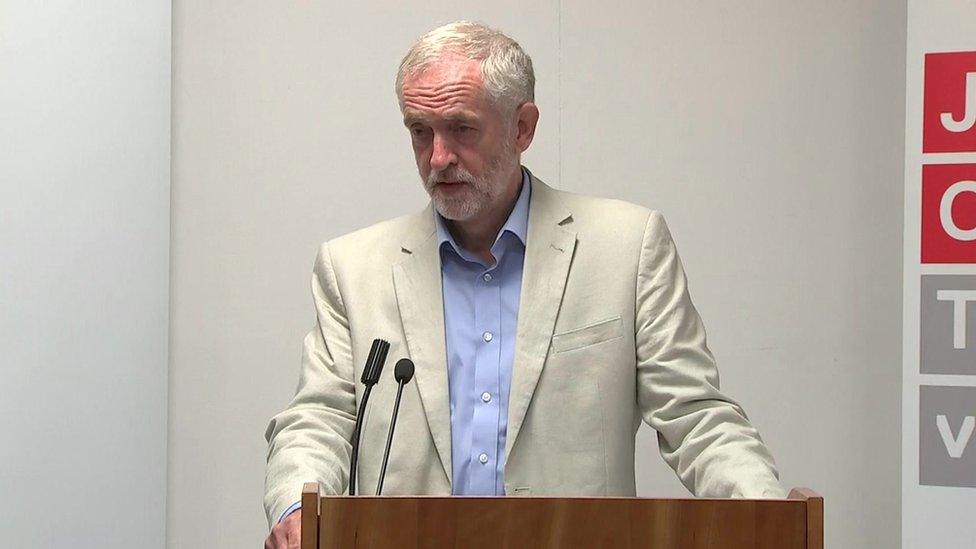Why did Sir Richard Branson take on Jeremy Corbyn?
- Published

A public attack on a politician is a risky gambit for a businessperson, even when they are as well-known and publicly admired as Virgin tycoon Sir Richard Branson.
Bankers, energy company bosses and most recently Sir Philip Green bear the scars of clashes with elected representatives in which the private sector normally comes off worse.
On Tuesday, however, Branson took on Jeremy Corbyn over his claims he hadn't been able to find a seat on a Virgin train.
Branson tweeted stills from CCTV footage that appeared to show the Labour leader walking past empty seats on his way to record a video lamenting the poor service provided by the privatised railway. Now Jeremy Corbyn's campaign team have hit back.
Why did Branson plunge in - and why nearly a week after the incident? There are some interesting pieces of context that might explain why the Virgin boss was so keen to get involved.
Court cases
First, Branson has never been slow to fight off attacks on his - and Virgin's credibility.
Two decades ago he staked his reputation in two high-profile libel trials, the first against British Airways over the "dirty tricks" affair, and the second against Guy Snowden, then chairman of the American gambling technology company GTech.
Branson said Snowden had offered him a bribe, and won the ensuing trial, as he did the case against British Airways.
Second, Corbyn's call for rail nationalisation is one of the few of his policies that has an appeal to a wide range of voters. Privatisation has seen record numbers of passengers, new trains and the revival of what was a declining mode of transport, but it has also brought high fares, fat cats and, recently, damaging strikes that have paralysed commuter routes.
There is a common feeling that nationalisation, a return to the "good old days" of British Rail, would make the problems go away.
Branson and his fellow private rail operators - notably Stagecoach, which owns 90% of the Virgin East Coast franchise where Corbyn tried to find a seat - are eager to kill this idea as quickly as possible. An attack on its most vocal proponent fits the bill.
Third, the east coast line is under financial pressure. Stagecoach recently described its performance as "challenging" which may be an understatement.
Challenging route
It and Branson promised to pay the government a £3bn premium over the life of the franchise, a promise that analysts think will require the company to hit annual revenue growth targets of 8-12%.
The best estimate is that it is achieving only half that. The east coast has been a graveyard for previous operators - both GNER and National Express had to hand back the keys after making over-optimistic promises on revenue.
One other factor may have weighed on Branson's mind. The old enemy - British Airways - had a fantastic day of PR yesterday, with a 747 sporting a gold nose cone carrying the British Olympic team back from the Brazil games.
It's not far-fetched to speculate that Branson, itching for an opportunity to knock BA out of the headlines, spied the row with Corbyn, and felt the opportunity too good to miss.
- Published24 August 2016
